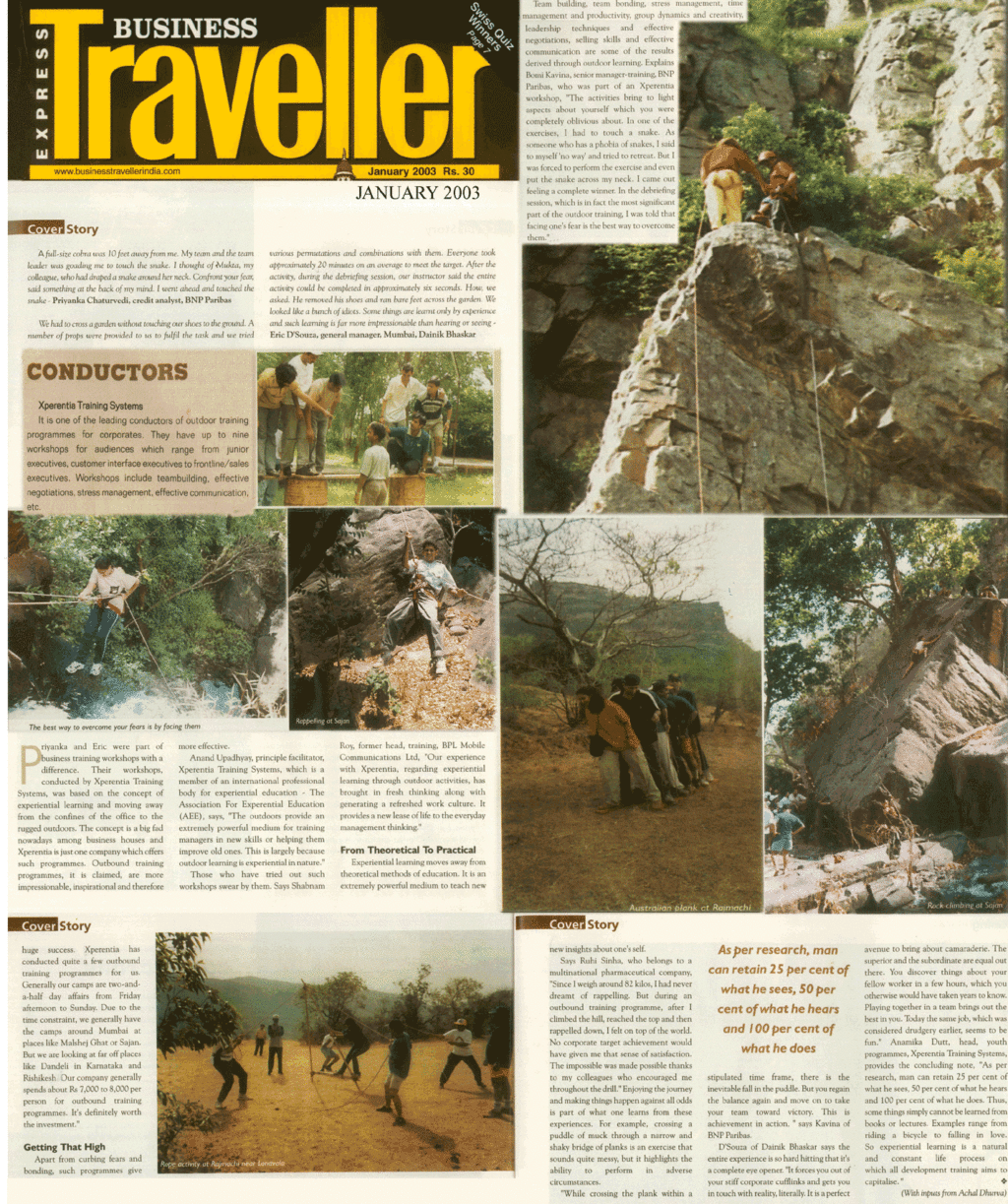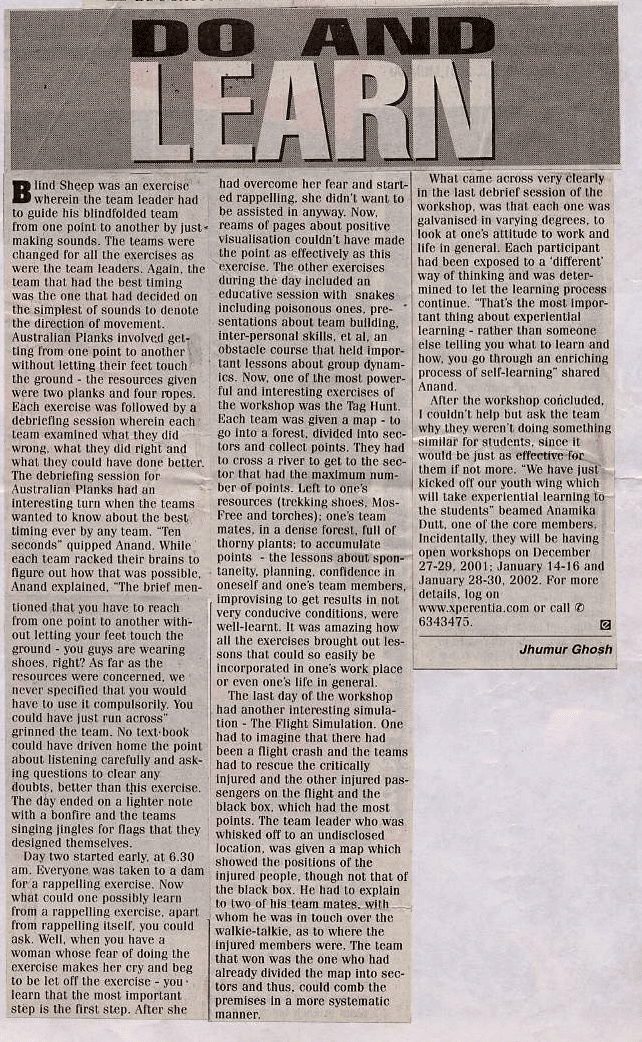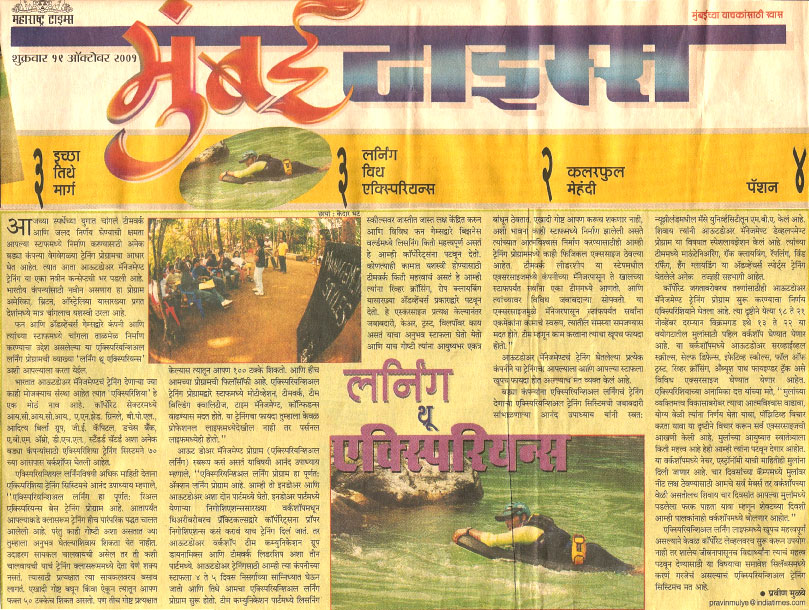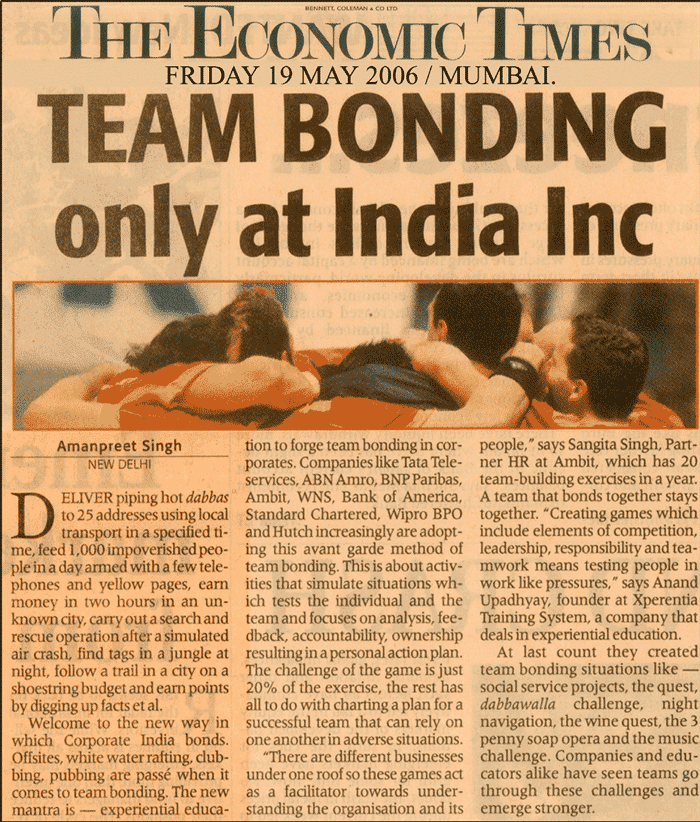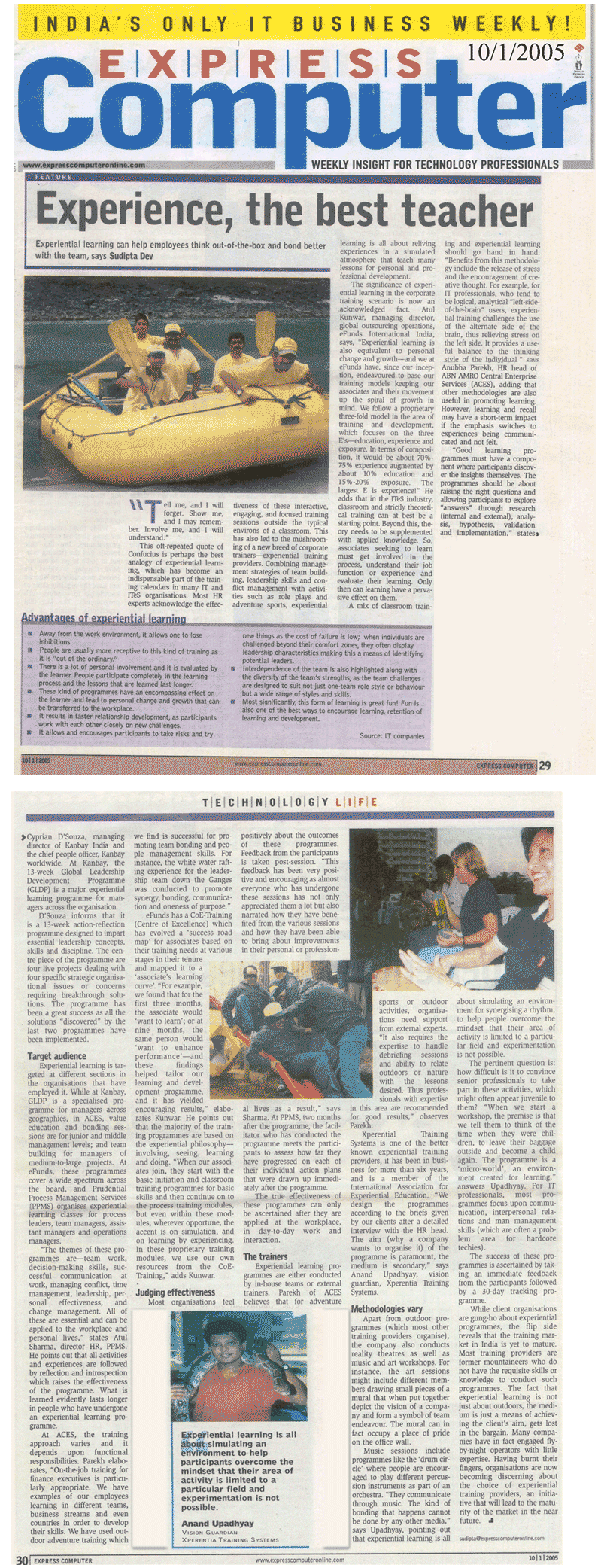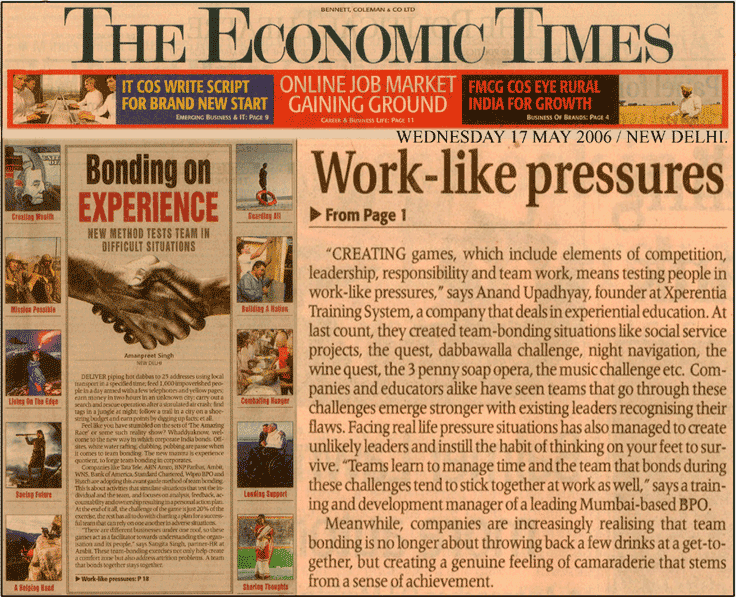“Learning is experience. Everything else is just information.”
Albert Einstein (1879-1955 AD)
“I hear, I know. I see, I remember. I do, I understand.”
Confucius (551-479 BC)
“Learning is experience. Everything else is just information.”
Albert Einstein (1879-1955 AD)
“I hear, I know. I see, I remember. I do, I understand.”
Confucius (551-479 BC)
“Tell me, and I forget. Teach me, and I may remember. Involve me, and I learn.”
– Benjamin Franklin (1706-1790)
There is no greater pleasure for a parent than to see their child succeed. To this end, characterized by the quintessential Indian parent, they are facing increased pressure to begin their child’s education in his younger years. This has resulted in increased pressure on children themselves, leading to anxiety about school and academic performance – so much so that is has led to numerous cases of mental disorders and even suicides.
“People grow through experience if they meet life honestly and courageously. This is how character is built”
– Eleanor Roosevelt (1884-1962)
DNA is the basic building block of any organism. It is a script, which often results in different interpretations by different cells of the organization. These interpretations are determined to a large extent by the environment, and indeed the experience, that the cell has been subject to.
While there are striking similarities between the Gurukul system and EL, the one big difference is that in EL, there is no ‘Guru’. The facilitator is on par with the participants in terms of status – everyone wears the same hat, literally and figuratively speaking. The facilitator is just that; he facilitates the learning process and does not interfere with it with his own biases and prejudices.
Most people put Outbound training events and eXperiential interventions in the same box. Nothing could be further from the truth – here are some distinct facts that separate them.
We work in a diverse environment. This means that we interact with people from different social
and cultural backgrounds on a daily basis. Thus diversity is a mean for organizational growth, an
influx of ideas and the amalgamation of best working practices. This plethora of cultures and
ideals leads to a more sustainable model for organizational growth.
However, there is a very real impact that this diversity poses which, if not handled carefully, would
lead to conflicts and a clash in operating norms. This danger is the lack of intra-team synergy
among the organization’s diverse teams. The traditional bonhomie that exists among teams from
the same geography and having similar backgrounds remains absent when the organization is
dealing with global teams without a similar, bonding cultural background.
Experiential learning works a treat when it comes to getting such global teams on the same page.
It provides people with similar experiences on which they can build upon. In doing so, the cultural
biases, the misunderstanding and the cultural conflicts among team members are eliminated and a
spirit of collaboration sets in among the culturally diverse teams.
Experiential workshops, hence, create a robust team culture to enhance productivity by leveraging
teams’ strengths and cohesion. The initial hesitation in opening up to a global set of colleagues,
with whom they have had little or no interaction is also eradicated in the early stages of experiential
workshops – usually in ice breaking simulations. This allows for more relaxed and motivated
participants, energized by coming face-to-face with a facet of their colleagues that they had not
seen before.
The initial ice breaker typically involves opening the mind of the participants. It is all about allowing
people to step out of their comfort zone. Depending upon the ice breaker, it also allows the participating teams to forge an identity for themselves and instil a comradery among the
participants who work together as a team. This also proves to be the foundation of further
interactions among the diverse teams, allowing them to fall back on this shared experience when
dealing with operating conflicts.
Further to that, experiential simulations allow the participants to experience the issues faced the
organizations in a non-threatening setting. These issues could range from strategy formulation and
implementation to being innovation and proactive when dealing with dynamic situations in a time
sensitive manner. Experiential workshops, through the use of simulations, allow the teams to face
issues head on and devise a solution. The learnings generated from solving these issues can then
be taken back and put in place in a work context.
Leveraging the potential of the teams is another key focus in these experiential workshops. The
simulations and activities allow the team members to trust their leaders, especially when the team
members do not see the bigger picture. It also allows them to achieve stated goals within the
constraints present – both in terms of resources and time. This also means that the members of
the teams develop trust in each other’s capabilities, leading to a more collaborative working
environment.
Activities in these workshops are designed to motivate people to pool their talents and perform at
their best individually and as team players. Team members discover that diversity is their greatest
asset and trust, cooperation and effective communication are the key to a team’s success. These
simulations not only encourage individual development, they bring all members together for a
common cause.
.
These experiential workshops have been conducted with a multitude of organizations with
tremendous results. The following comments highlight the impact that experiential workshops have
had with the participants:
“Very nicely conducted, in a friendly environment”
“Brought the whole team together”
“Good way to translate conceptual stuff in an easy manner”
“The relation to the real world of business was tremendous”
“Very meaningful and thought provoking activities”
“Superb connect to the workplace and to strategy”
“Through the active sessions, we demonstrated the challenges and solutions to ourselves. True
empirical evidence”
“Learnings came out of activities and really hit us into our faces. Absolutely practical. I do, I
understand.”
By Vipul Mathur, Head Client Partnerships, Xperentia Consulting
Experiential learning can be defined as a method of learning through first-hand experiences. For students, the Skills, knowledge and attitudes required to succeed in today’s dynamic world are acquired outside of the traditional academic classroom setting and may include social projects, field research and service-learning projects.
For working professionals, these gains are acquired through structured experiential management development workshops.
The best example of the Experiential learning methodology would be the ancient Indian Gurukul System (Consisting of 1 Acharya / Guruji and 10-12* Shishyas / Students), where the daily routine chores are divided amongst the shishyas/students. For instance, if cooking is a task then all the elements of cooking (water, wood, Vegetables, Grains, etc) required to achieve the goal (cooked food) are divided among the shishyas. Few look after procuring water, while others take care of vegetables, grains and still others take the responsibility of collecting wood, dried grass and so on.
Though working on different elements, their common aim is one i.e. cooked food. After the food is cooked and enjoyed by all, the shishyas/students share their experiences while performing their particular tasks.
The Guruji/Acharya then de-briefs them on the tasks they performed, the mistakes they made and draws parallels to their approaches to life – All the things under the Sun grow and flourish because of the common principles they adhere to; Like the tree has a strong foundation because of its roots. The roots get nourished from the soil and the soil receives water from rain. Each of these elements has to work together in perfect harmony for the Ecosystem to work.
If we anthropomorphise the tree, it would seem that roots are the reason the tree lives and thrives – if it detaches itself from the roots, then it is violating the principals of this Ecosystem and the consequences will be the end of its life. Similarly, a lot of parallels can be drawn for us I.e. values and ethics (roots) as guiding principles. Experiential workshops for young people, like the Gurukulas of yore, help us in understanding, appreciating and imbibing these value driven principals in our lives.
By Kunal Dorji, Student Intern at Xperentia Consulting.

